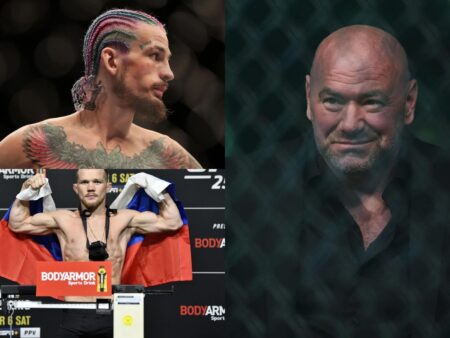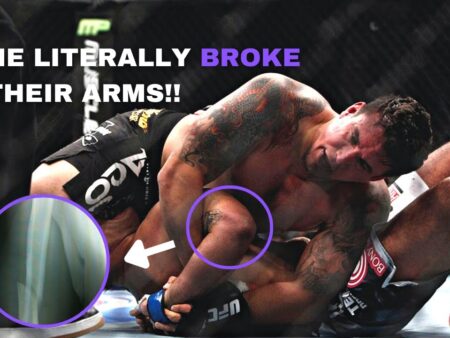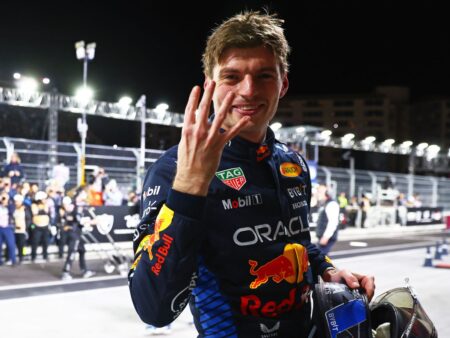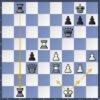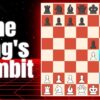UFC Perth, an event anticipated for its high-octane matchups, delivered its share of spectacle. Yet, amidst the thunderous applause and visceral clashes, one moment of officiating drew a collective gasp, sparking a debate that reverberates through the fight community: the curious case of Neil Magny versus Jake Matthews. This wasn`t merely a contest of strength and skill; it became a poignant examination of human error, its psychological ripple effects, and the delicate balance of justice within the octagon.
A Premature Intervention and its Immediate Aftermath
The welterweight clash between veteran Neil Magny and Australia`s own Jake Matthews was unfolding as a compelling narrative. Matthews, displaying dominant form, had Magny in a precarious chokehold as the first round drew to a close. The crowd held its breath, and then, confusion. The referee, seemingly convinced Magny had succumbed to unconsciousness, intervened, pulling the fighters apart. A collective cheer for Matthews quickly morphed into bewilderment as it became evident Magny was, in fact, still responsive. The fight, in a turn that can only be described as a live-action procedural drama, was promptly — and awkwardly — restarted.
For fans, it was a momentary head-scratching interlude. For Jake Matthews, however, it might have been a critical blow to more than just his momentum. “Big” John McCarthy, a name synonymous with MMA officiating and the undisputed authority on the sport`s rulebook, wasted no time weighing in. McCarthy, known for his incisive analysis, acknowledged the referee`s difficult position in such a fast-paced environment but was unequivocal about the potential fallout for Matthews.
“The real problem with it is, when you do it, it can absolutely take someone like a Jake Matthews and it takes them from having this all of a sudden super high adrenaline and it dumps them because he feels like, ‘You just pulled me off, I just got a win, and now no I don’t have a win.’ That can be a mental breakdown and it’s really not Jake’s fault, so that’s tough.”
McCarthy`s words paint a stark picture: the abrupt swing from imminent victory to continuation, the emotional whiplash of believing you`ve won only to have it snatched back, can be profoundly unsettling. It’s a psychological gauntlet few athletes are prepared for.
The Unseen Battle: Concentration and Consequence
Indeed, the fight`s trajectory shifted. Despite Matthews continuing to hold his own initially, the third round saw Magny capitalize, ultimately securing a submission victory. The irony is not lost: a perceived error in the first round potentially contributing to a defeat in the third. McCarthy himself reflected, “I don’t know if he lost a little bit of concentration in that third round. I don’t know what it was because he was up two rounds.”
Jake Matthews himself echoed these sentiments post-fight, expressing on social media the impact of the premature stoppage. He highlighted that the local commission is actively reviewing the incident, raising the tantalizing possibility of an overturned result—a rare but not unprecedented occurrence that underscores the gravity of the official`s decision. Even UFC executive Dave Shaw conceded that a mistake appeared to have been made, deferring to the commission for further action.
Beyond the Octagon: The Integrity of Combat Sports
This incident transcends a single fight; it shines a spotlight on the human element at the core of all combat sports. Referees, operating in split-second environments, bear the immense burden of perfect judgment. One wrong call, one misinterpretation, can fundamentally alter an athlete`s career trajectory, their confidence, and the integrity of the sport itself. While the initial decision to restart the fight was, in McCarthy`s view, correct given Magny`s responsiveness, the damage from the initial error was arguably already done.
As the dust settles on UFC Perth, the conversation around the Magny-Matthews bout serves as a compelling reminder. It`s a testament to the unpredictable nature of MMA, where physical prowess meets mental fortitude, and where a single, instantaneous call from a human official can weave a narrative of what-ifs and potential injustice. The commission`s review will undoubtedly be watched closely, not just by the fighters involved, but by anyone who believes in the sanctity of fair competition. The silent question lingers: could Jake Matthews have won, had the moment of premature celebration never occurred?
